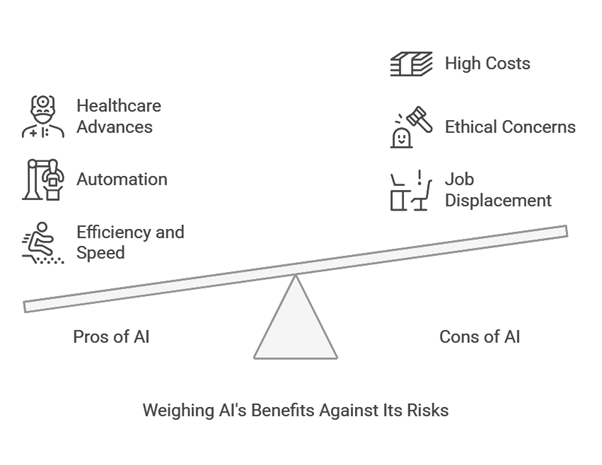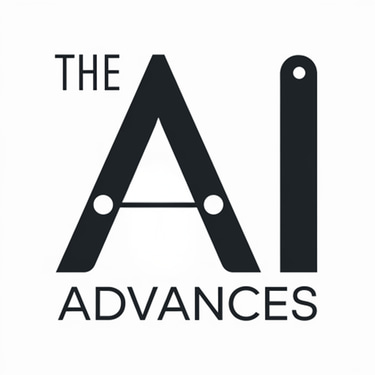What is AI ?
BASICS OF AIMETHODSTOOLS IN AIBIOLOGYECONOMICSGEOSCIENCEEDUCATION
3/26/20252 min read
AI
Artificial Intelligence (AI) refers to the simulation of human intelligence in machines that are programmed to think and learn like humans. The ideal characteristic of artificial intelligence is its ability to rationalize and take actions that have the best chance of achieving a specific goal. A subset of artificial intelligence is machine learning, which refers to the concept that computer programs can automatically learn from and adapt to new data without being assisted by humans. Deep learning techniques enable this automatic learning through the absorption of huge amounts of unstructured data such as text, images, or video.
Pros of AI to Humanity
Efficiency and Speed:
AI can process information much faster than humans and can operate without fatigue. This is beneficial in industries where high-speed data processing and quick decision-making are crucial, such as finance or emergency response.
Automation:
AI enables the automation of numerous tasks across various industries. From manufacturing to the service sector, AI-driven automation not only increases production rates but also improves precision in tasks where human error could be detrimental.
Healthcare Advances:
In healthcare, AI technologies can diagnose conditions more accurately, develop personalized medicine, and predict patient outcomes. These advancements can lead to more effective treatments and better patient care.
Enhancement of Safety:
By taking over risky tasks, AI can enhance safety in dangerous industries like mining or construction. Autonomous vehicles and drones also hold the promise of reducing accidents caused by human error.
Data Management:
AI excels at managing and analyzing large datasets, which can lead to discoveries and insights that are humanly difficult to achieve. This ability is transforming fields such as climate science, astronomy, and business analytics.
Cons of AI to Humanity
Job Displacement:
AI and automation can lead to significant job displacement. As machines take over tasks traditionally performed by humans, there could be a decrease in certain types of jobs, which might lead to economic disparities and social unrest.
Ethical Concerns:
AI systems can perpetuate existing biases present in their training data, leading to unfair outcomes in areas like recruitment, law enforcement, and lending. The development of AI technologies also raises concerns about surveillance and privacy.
High Costs:
Developing AI technologies can be expensive due to the costs associated with advanced hardware and software, as well as the need for significant expertise. This can make it difficult for smaller businesses or poorer regions to adopt AI technologies, potentially leading to a digital divide.
Dependency and Loss of Skills:
Over-reliance on AI might result in a degradation of certain human skills, particularly those related to social interactions and complex decision-making. This dependency could have long-term impacts on human capability.
Control and Security Risks:
As AI systems become more powerful, the risk of loss of control over these systems increases. There are also security concerns, as AI systems are susceptible to unique types of attacks that could lead to widespread damage if not properly managed.
In conclusion, while AI offers numerous benefits to humanity by enhancing efficiency, safety, and decision-making capabilities, it also presents challenges such as job displacement, ethical concerns, and security risks. Balancing these pros and cons is crucial as we integrate AI more deeply into society.


My post content
Insights
Explore AI news, expert articles, and workshops.
Connect
Learn
© 2025. All rights reserved.
